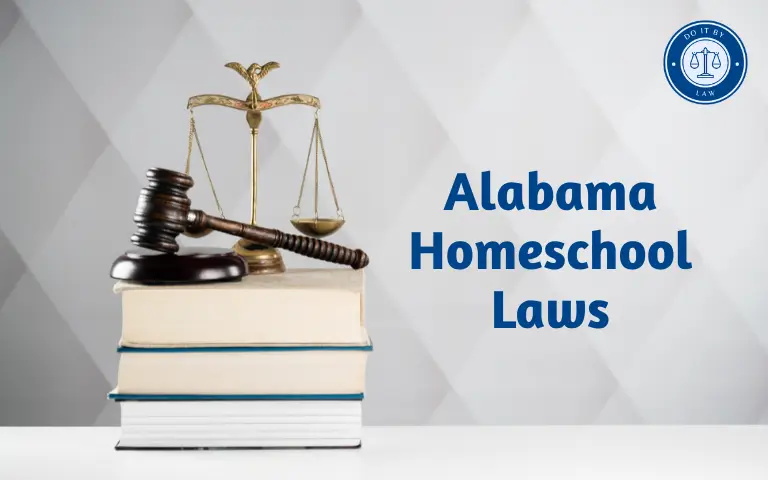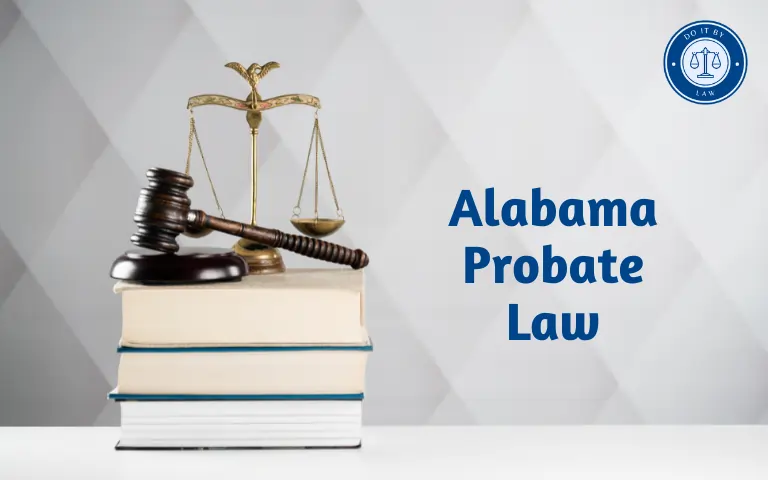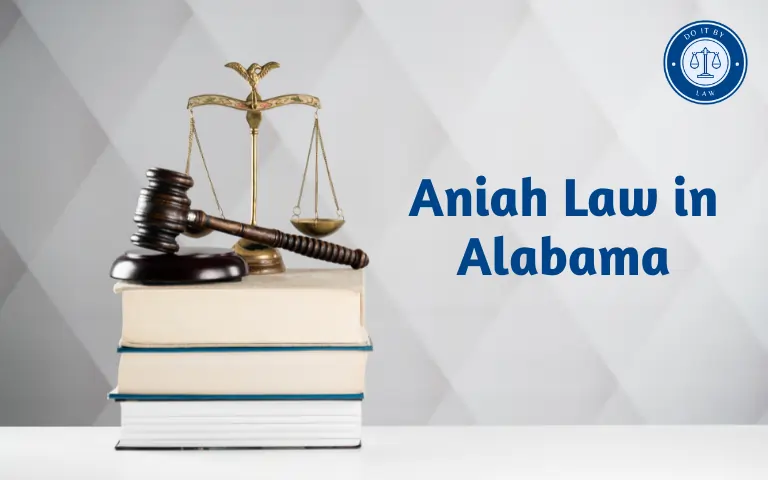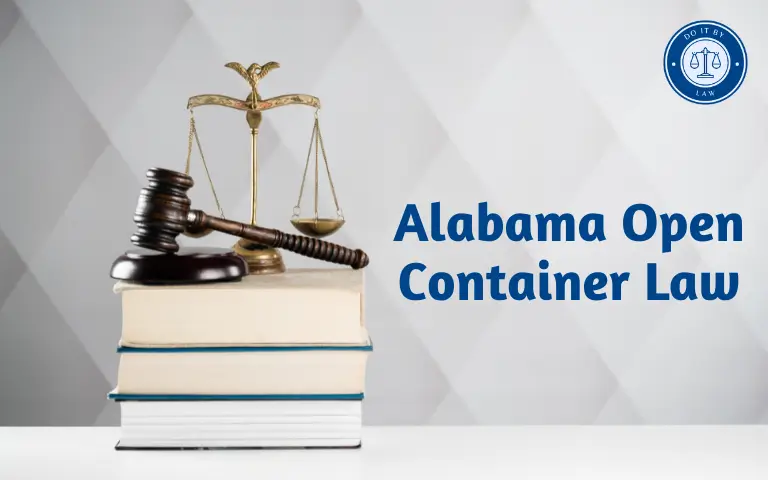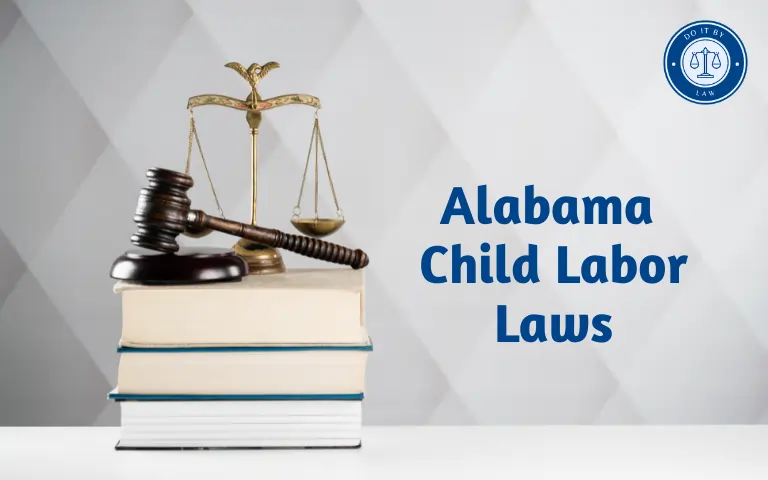Alabama Homeschool Laws: What You Need to Know
Homeschooling has grown popular in Alabama, allowing parents to directly control their child’s education. However, families must follow key Alabama laws and regulations to legally homeschool their children in the state. This article provides an overview of Alabama homeschool laws, rules, and compliance requirements that homeschooling parents should understand.
When Were Alabama Homeschool Laws Enacted
Homeschooling was once banned in Alabama until reforms in the 1980s opened up legal options for homeschooling families. Key developments include:
- 1983 – Alabama passed a law allowing church schools not seeking accreditation to operate without state oversight. This enabled homeschool cooperatives to form church schools as an early option for homeschoolers.
- 1985 – The Alabama Board of Education created an exemption allowing parents to homeschool their children independently as a legal alternative to attendance at public or private schools.
- 1988 – The Alabama legislature passed Act No. 88-664, which formally codified homeschooling as a legal choice for families under the control of local boards of education. This established homeschooling under Alabama’s compulsory attendance laws.
- 1993 – The Alabama Board of Education issued regulations detailing compliance requirements and guidelines for homeschooling under the oversight of local superintendents.
So while homeschooling was once outlawed in Alabama, statutes and policies were enacted in the 1980s and expanded in the 1990s to formally legalize and regulate homeschools.
Why Alabama Homeschool Laws Exist
Key reasons that homeschool laws and regulations exist in Alabama include:
- To formally authorize and establish guidelines for homeschooling as an alternative to public or private school attendance.
- To enact compliance requirements that ensure children taught at home receive adequate educational instruction.
- To empower local school boards with oversight authority over homeschools in their districts.
- To mandate curriculum, testing, and reporting so homeschooled students achieve learning standards.
- To create a legal framework defining parents’ rights and responsibilities in providing home education.
- To ensure student health, safety, and welfare through reasonable homeschool regulations.
Overall, the laws balance educational quality and children’s well-being with parental rights to direct their child’s upbringing.
Who Alabama’s Homeschool Laws Apply To
Alabama’s homeschool statutes and regulations apply to:
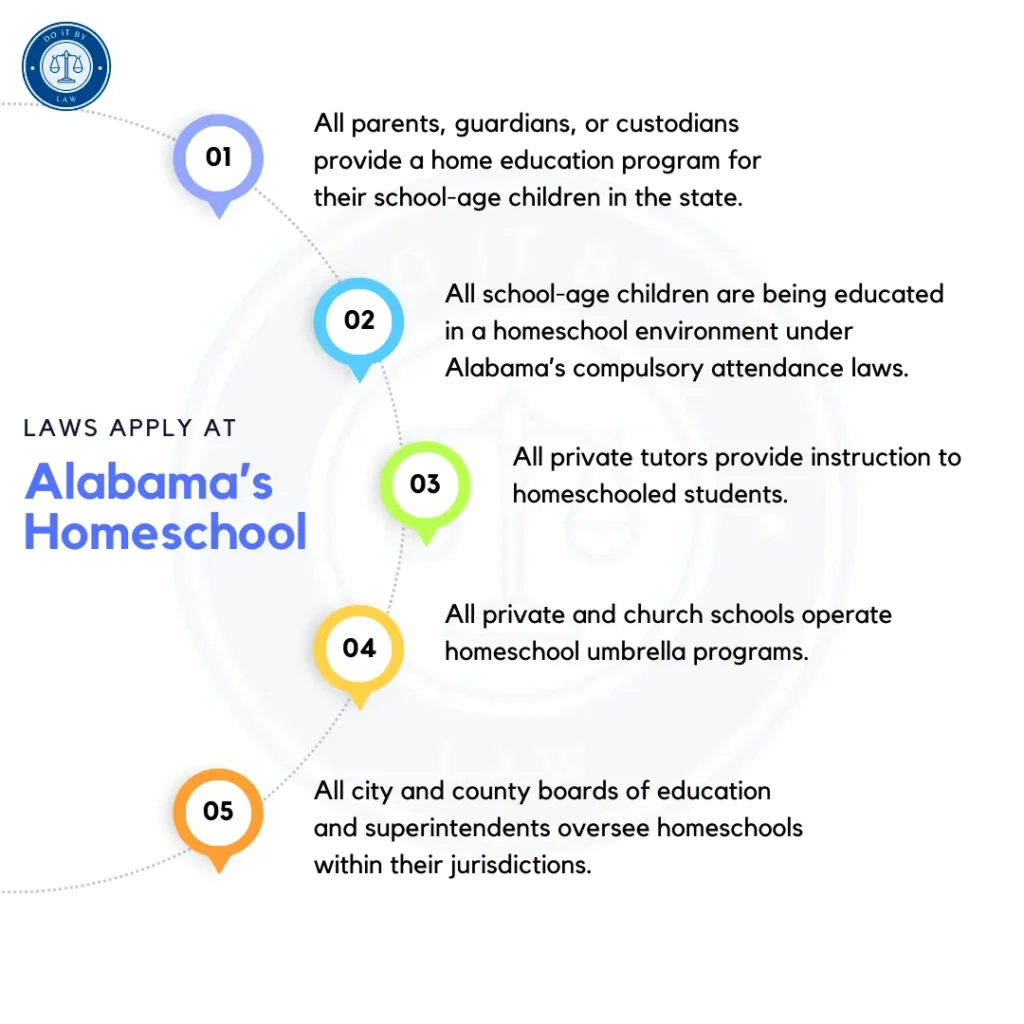
- All parents, guardians, or custodians provide a home education program for their school-age children in the state.
- All school-age children are being educated in a homeschool environment under Alabama’s compulsory attendance laws.
- All city and county boards of education and superintendents oversee homeschools within their jurisdictions.
- All private and church schools operate homeschool umbrella programs.
- All private tutors provide instruction to homeschooled students.
The laws broadly govern the rights and responsibilities of all participants in legally operating homeschools located within Alabama.
Key Provisions of Alabama Homeschool Laws
Major homeschooling requirements under Alabama laws and regulations include:
Compulsory Attendance
- Homeschooling satisfies compulsory attendance laws but parents must provide instruction for the minimum number of hours.
- Parents must give written notice of intent to homeschool to their local superintendent and sign an enrollment form taking responsibility for their child’s education.
Curriculum
- Parents must provide instruction in math, English, science, history, geography, and other core subjects.
- The homeschool curriculum should be equivalent to public school standards.
Instructor Qualifications
- Parents providing homeschool instruction must have at least a high school diploma or GED.
Testing
- Annual standardized testing is required in specified core subjects for certain grade levels. Scores must be provided to superintendents.
Records
- Parents must maintain attendance records, test scores, immunization records, and descriptions of curriculum and instructional materials. Records are subject to periodic review.
- An annual progress report must be submitted to the superintendent including test results.
Oversight
- Local superintendents are responsible for reviewing compliance with notice, testing, curriculum, and reporting requirements.
- Home visits or meetings between parents and superintendents may be required periodically.
Penalties for Violating Alabama Homeschool Laws
Parents who fail to follow key homeschooling requirements in Alabama may face:
- Written warnings and directives to comply from superintendents.
- Loss of homeschool enrollment status and the requirement to enroll children in public or private school.
- Referral to juvenile probation officers or child welfare agencies for educational neglect.
- Fines or imprisonment in severe cases for violating compulsory education laws.
Homeschool rights in Alabama come with legal responsibilities. Noncompliance can result in the loss of homeschool privileges along with potential criminal penalties in extreme instances.
Recent Changes to Alabama Homeschool Laws
Some recent modifications impacting homeschooling in Alabama include:
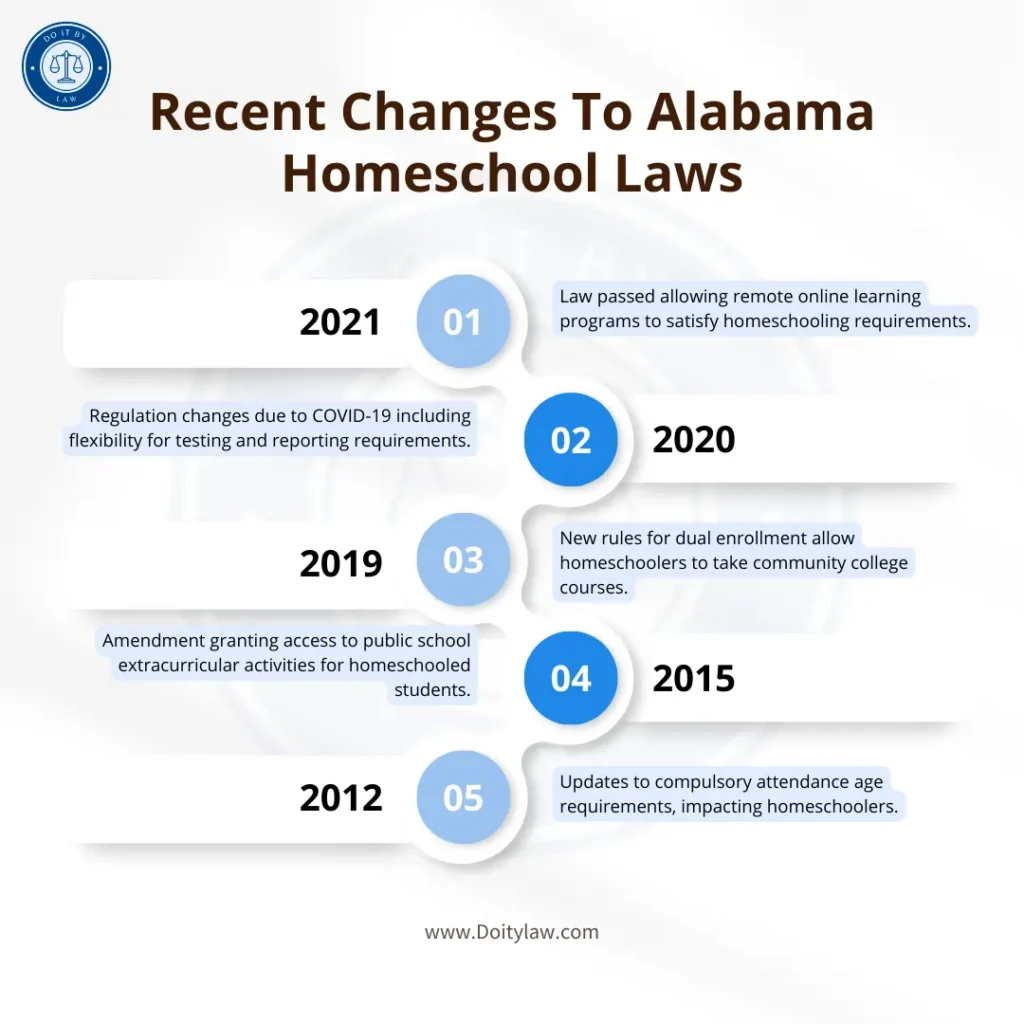
- 2021 – Law passed allowing remote online learning programs to satisfy homeschooling requirements.
- 2020 – Regulation changes due to COVID-19 including flexibility for testing and reporting requirements.
- 2019 – New rules for dual enrollment allow homeschoolers to take community college courses.
- 2015 – Amendment granting access to public school extracurricular activities for homeschooled students.
- 2012 – Updates to compulsory attendance age requirements, impacting homeschoolers.
While Alabama’s homeschool statutes remain stable, incremental changes occur over time to clarify rules and expand options as virtual education evolves.
Controversies and Debates Around Homeschool Laws
Alabama’s homeschool laws spark periodic debate on issues like:
- How much regulation is appropriate to ensure quality while preserving parental rights and flexibility?
- Whether homeschoolers should have access to public school services, programs, and activities.
- If government oversight infringes on religious freedom for faith-based homeschoolers.
- Whether standardized testing accurately measures homeschool achievement.
- If online education provides sufficient socialization compared to traditional schools.
- How much transparency homeschool families should have to provide to authorities?
- If homeschool graduates are prepared for higher education and careers.
Ongoing discussions balance educational priorities, costs to taxpayers, and the rights of homeschool families.
Conclusion: Key Takeaways on Alabama Homeschool Laws
In summary, major points about homeschool laws in Alabama include:
- Homeschooling has been legally authorized in Alabama since the 1980s but is regulated under statutes established in the 1990s.
- Homeschools must meet compulsory education requirements but allow parents full control over curriculum and instruction.
- Key compliance areas include annual notices, testing, curriculum, record-keeping, and reporting overseen by local superintendents.
- Homeschooling offers broad freedoms to parents but following legal requirements is critical to maintaining homeschool authorization.
- Regulations aim to ensure satisfactory educational quality while preserving flexibility for families.
- Debates continue around appropriate oversight policies balancing child welfare, parental rights, costs, and educational priorities.
Alabama provides a relatively permissive legal environment for homeschooling, but families should understand the important responsibilities that accompany their educational freedoms.

